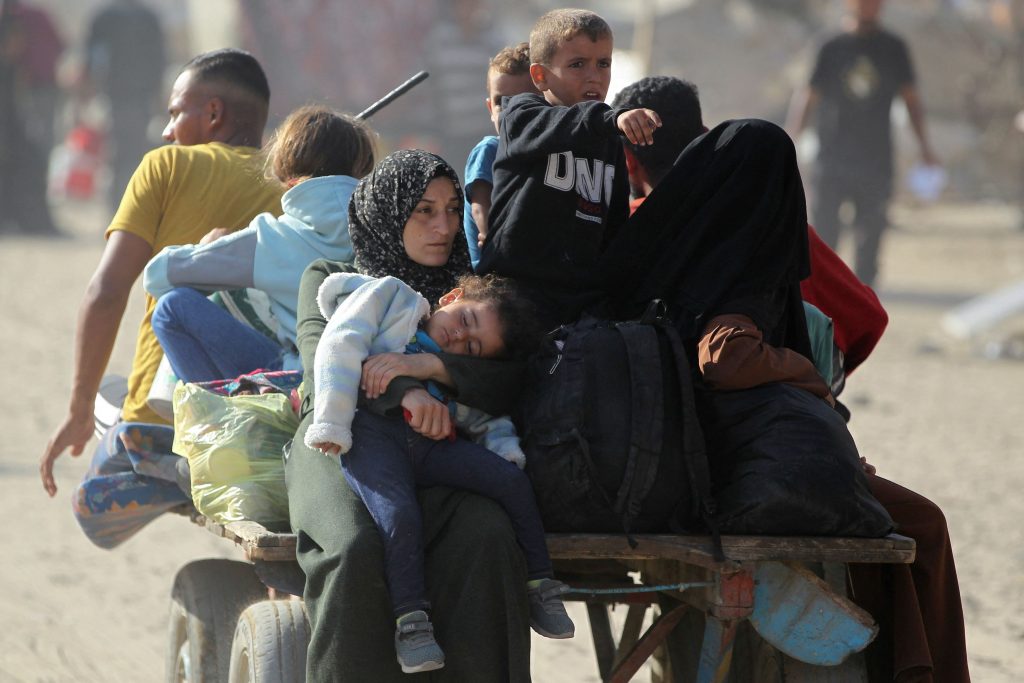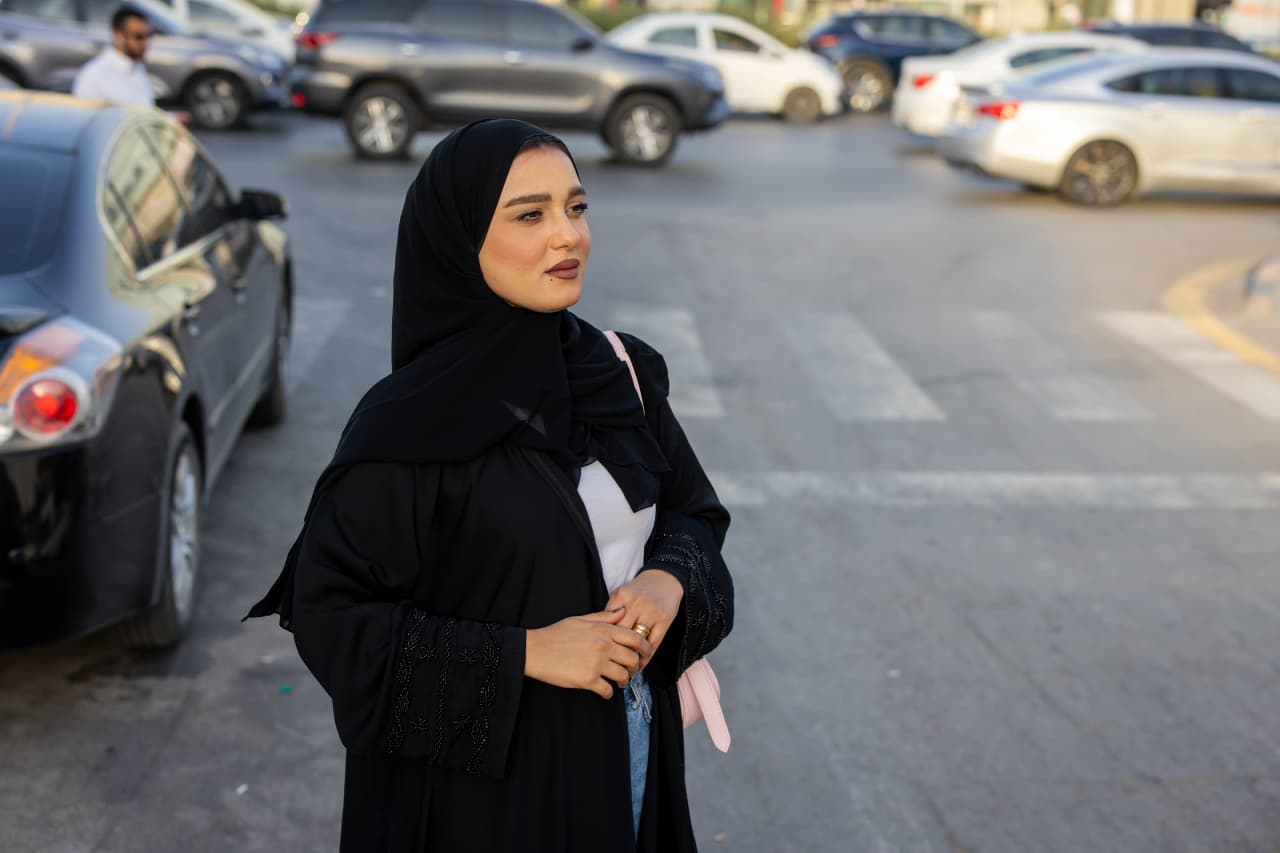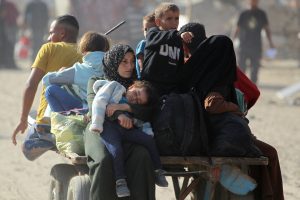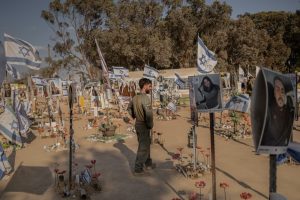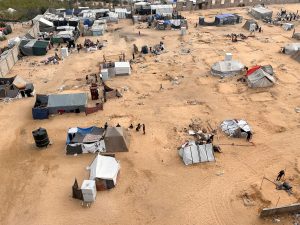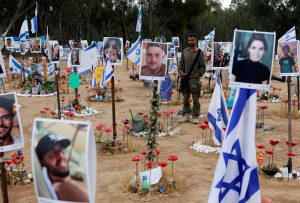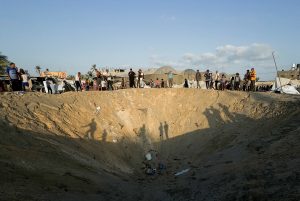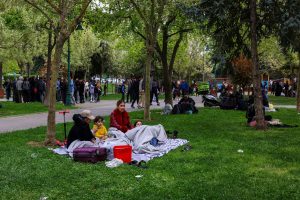On Oct. 6, 2023, bride-to-be Meram Abu Shabaan was ecstatic for what she thought would be the best day of her life.
She was to be married, and she spent the day painting her nails, partying with family and spending a late night at the beach, reflecting on how her life was about to change forever.
And it did, just not in the way the 25-year-old resident of Gaza City had anticipated.
On the day of her wedding, militants led by U.S.-designated terrorist group Hamas launched the attack on Israel that authorities say killed about 1,200 people, left 250 as hostages and sparked a war that would leave the Gaza Strip a ruined husk. Abu Shabaan awoke to her mother bursting into her bedroom screaming.
“I thought we were late for the wedding-day hairdresser appointment,” Abu Shabaan said. “Then I heard the sound of rockets.”

Abu Shabaan shows a photo of an invitation to her canceled wedding. Photo: Tasneem Alsultan for WSJ
On Oct. 6, excitement also filled the air of Hanan Bayouk’s Gaza home. The 24-year-old had given birth to triplets in a Jerusalem hospital weeks earlier and was looking forward to returning to pick them up now that they had stabilized enough to be discharged.
Her situation reflects the strange mix of separation and interdependence that runs through Israel and the occupied Palestinian territories. The hospitals in the blockaded and fenced-off Gaza Strip couldn’t adequately handle Bayouk’s high-risk pregnancy, so she had to secure an Israeli permit to travel to East Jerusalem to give birth.
Her triplets, born prematurely and underweight in August, needed weeks of care. But Bayouk’s permit was set to expire before they would be discharged. She had no choice but to return to Gaza without her newborns, and then reapply to enter Israel to retrieve them once they had stabilized.
Bayouk had her papers together and was all set to go the week of Oct. 8. But after the attack, Israel slammed shut the doors, closing its crossings and canceling entry permits for Palestinians . Bayouk hasn’t been able to see her children, now a year old, since their birth, and has no idea when she will.
“They don’t know their mother or father,” she said of the triplets, who are being raised in a hospital nursery. “I have heard them over the phone calling the nurses ‘mama.’ It is a devastating moment every time.”
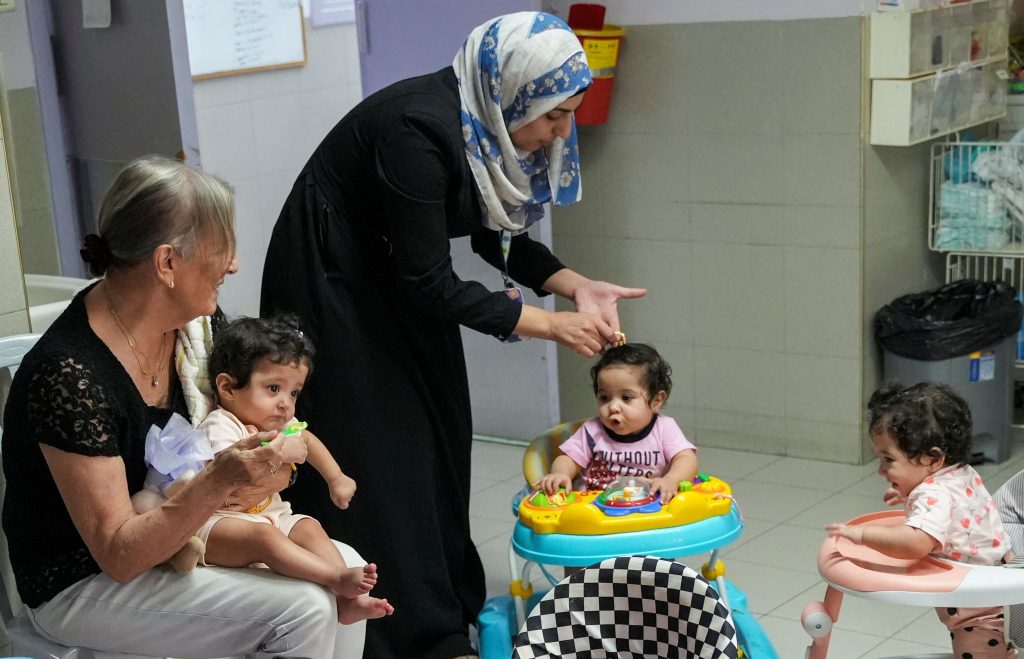
Palestinian triplets from al-Bayouk family, born prematurely and separated from their mother who had to leave them at hospital in Jerusalem to recover as she had to return to Gaza after her Israeli-issued permit expired before the ongoing Israel-Hamas conflict, are cared for at Makassed hospital in East Jerusalem August 26, 2024. Since the war began, Israel has not been issuing permits for Gaza residents to visit Jerusalem, resulting in the separation of Hanan from her triplets. REUTERS/Latifeh Abdellatif
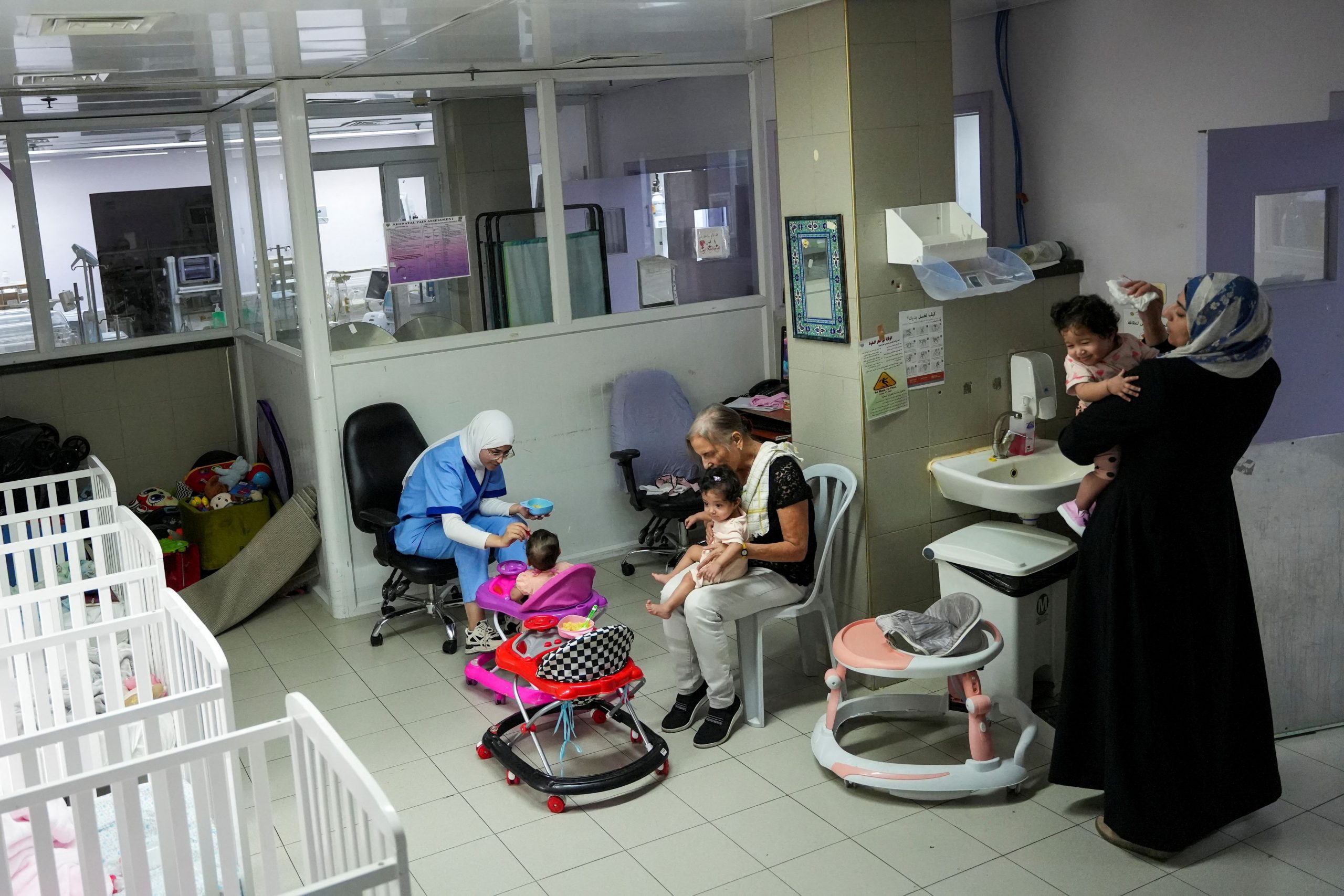
Hanan Bayouk’s children are being raised in a hospital nursery in East Jerusalem. Photo: latifeh abdellatif/Reuters
Dr. Hatem Khammash, head of the neonatal unit at the hospital in which the triplets are being raised, said there are two other cases at the medical center of children separated from their mothers in Gaza. He said nurses and volunteers from the community care for the children and play and speak with them. “But the children still need their mothers—their milk, their affection, their care,” he said.
Cogat, the Israeli military body responsible for liaising with Palestinians, didn’t respond to a request for comment.
While Israelis struggle with a new sense of vulnerability, fight wars on multiple fronts and fear for the fate of the roughly 100 hostages still held in Gaza after being kidnapped on Oct. 7, Palestinians are picking their way through shattered lives in a devastated landscape.
Israel’s military response has left more than 41,000 people dead and more than 95,000 injured, including many women and children, according to Palestinian health authorities, who don’t say how many casualties were combatants. Nearly two million people—roughly 90% of Gaza’s population—have been forced from their homes and often have had to move many times.
Much of the enclave is unlivable , and schools and hospitals have been destroyed. The war has separated families and created thousands of orphans and amputees . And it has crushed dreams . For many Palestinians, there is little hope for an end—in part because talks toward a cease-fire have gone nowhere and because no one has seriously outlined a plan for how the Gaza Strip will be administered or rebuilt after the war .
Meanwhile, they are left to make often impossible decisions.
Bayouk—the mother of triplets, who like most Gaza residents is barred from entering Israel—had to choose whether to be content that her children were in Jerusalem, away from Israeli bombardment, or to fight to get them home, even in a war zone. She decided on the latter, and is working with a human-rights organization to try to bring her children to Gaza.
“The most important thing is for my babies to be reunited with their mother,” she said. “What is going to happen to their development if this continues another year? They are going to grow up confused, raised in a hospital without knowing their relatives or knowing how to speak or walk properly,” she said, noting that were they raised by family, they would receive constant attention and exposure to natural conversation from dozens of relatives and friends.
Trapped—inside and outside of Gaza
Before the war, Rafiq Al Ashi, a 44-year-old entrepreneur from Gaza City, owned several successful clothing shops as well as a buzzing co-working space he opened to accommodate the budding post-Covid freelance and remote-work economy. He was even planning to expand that space to meet the growing demand and had ordered supplies from China shortly before Oct. 7.
The supplies never made it to Gaza. And by Oct. 8, the high-rise building that housed Ashi’s co-working space and one of his clothing stores had been destroyed in an airstrike. “I still fall into dismay when I think about it,” Ashi said. “To see everything I worked toward turned into dust.”
As weeks of war went by, Ashi got an opportunity most Gaza Palestinians caught up in the war never get—to leave. His children took the opening and went to neighboring Egypt, reuniting with their mother, who was there visiting relatives on Oct. 7.
But the father of four, who was granted an exit to the United Arab Emirates, where he had residency status, decided to remain in Gaza. He refused to join the 110,000 Palestinians estimated to have left the enclave since Oct. 7— fearing he wouldn’t be able to return after the war.
He said he is seeking to avoid the fate of the hundreds of thousands of Palestinians exiled amid the founding of Israel in 1948 and now stuck in diaspora.
“I don’t want what is happening in Gaza to happen without me here. I want to bear witness, to see and feel the mechanics of daily life—the kind of things you lose when you just follow what is happening on a screen,” Ashi said in a phone interview from his tent near Gaza’s shore. “I want to be one of the first people aiding its reconstruction.”
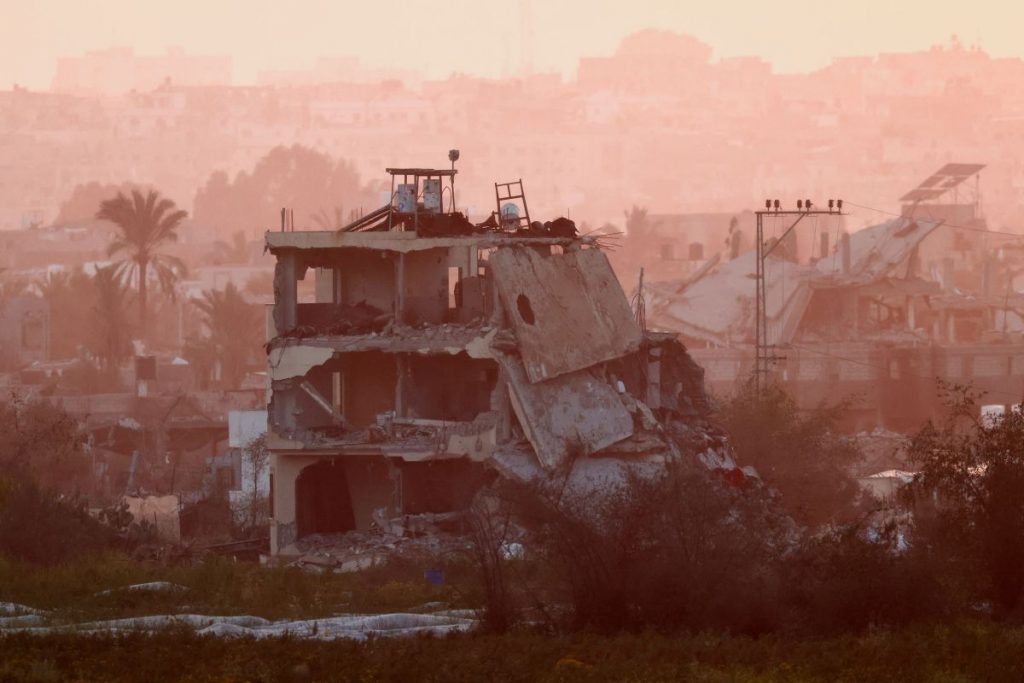
A damaged building from Gaza is pictured, amid the ongoing conflict between Israel and Palestinian Islamist group Hamas, as seen from Southern Israel, March 2, 2024. REUTERS/Amir Cohen
Last October, as Abu Shabaan was preparing for her wedding and Bayouk was joyously anticipating being reunited with her triplets, Yasmine Mohamed, a water engineer from Gaza, was 2,000 miles away in the Netherlands on a business trip for a two-week course.
Travel from Gaza was highly restricted even before the war. Mohamed planned to make the most of her last Saturday in the country—Oct. 7—wandering through Amsterdam’s winding paths.
Instead, she woke up to her phone’s incessant buzzing, saw the images of a new war flooding her phone, and collapsed. Beyond the toll in lives already lost, she knew she would be separated indefinitely from her children and husband, and that their lives would be in grave danger.
“I was in shambles,” Mohamed said. “I spent entire days crying, afraid for my family and broken that I couldn’t be there for them.”
A year later, Mohamed, 42, still hasn’t reunited with her family. “I just want it all to be over,” she said.
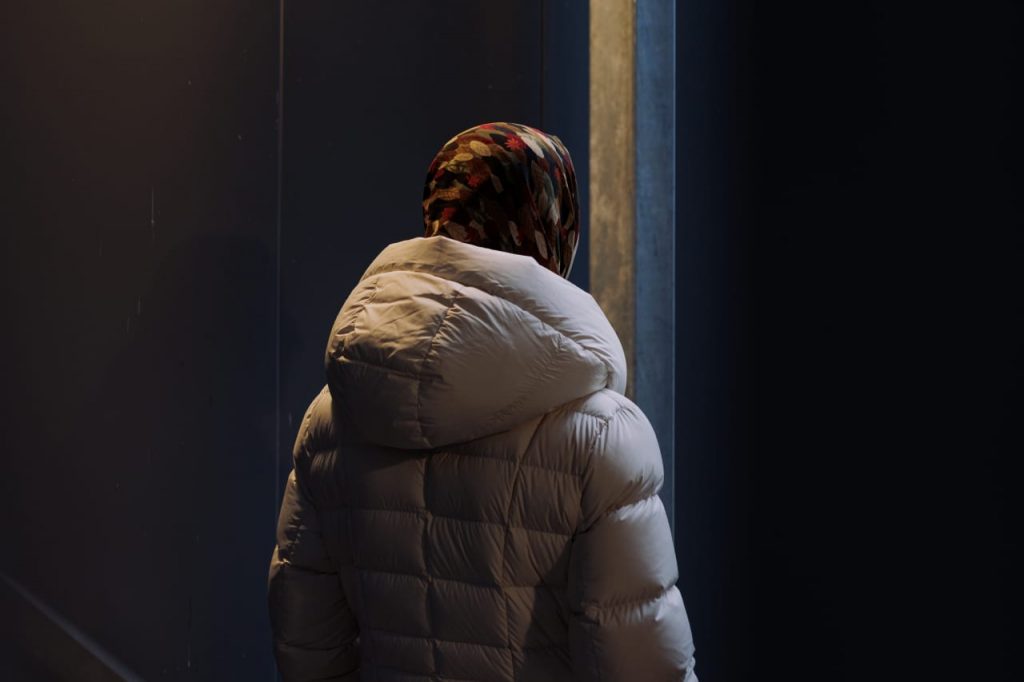
Yasmine Mohamed says she spent days crying after learning while abroad about a new war in Gaza. Photo: Jagoda Lasota for WSJ.
She tried from the moment the news broke to get back to Gaza. When that failed, Mohamed applied for asylum in the Netherlands, restricting her travel outside the country in the process. She had little money, few belongings and limited knowledge of local customs, language or bureaucracy. She returned the gifts she had purchased for her children at the airport just before the war so she could have some spending money.
“When my children would ask for videos and photos of the Netherlands, I was ashamed to send any,” Mohamed said. “I didn’t want them to see I was in such a nice place while they were living in a war zone.”
In February, her husband and children managed to get evacuated to Egypt, where they remain with heavy restrictions on their movement and unable to reunite with her. Mohamed hopes to obtain asylum and move her children to the Netherlands, where she is now employed in her field, water management, and studying Dutch.
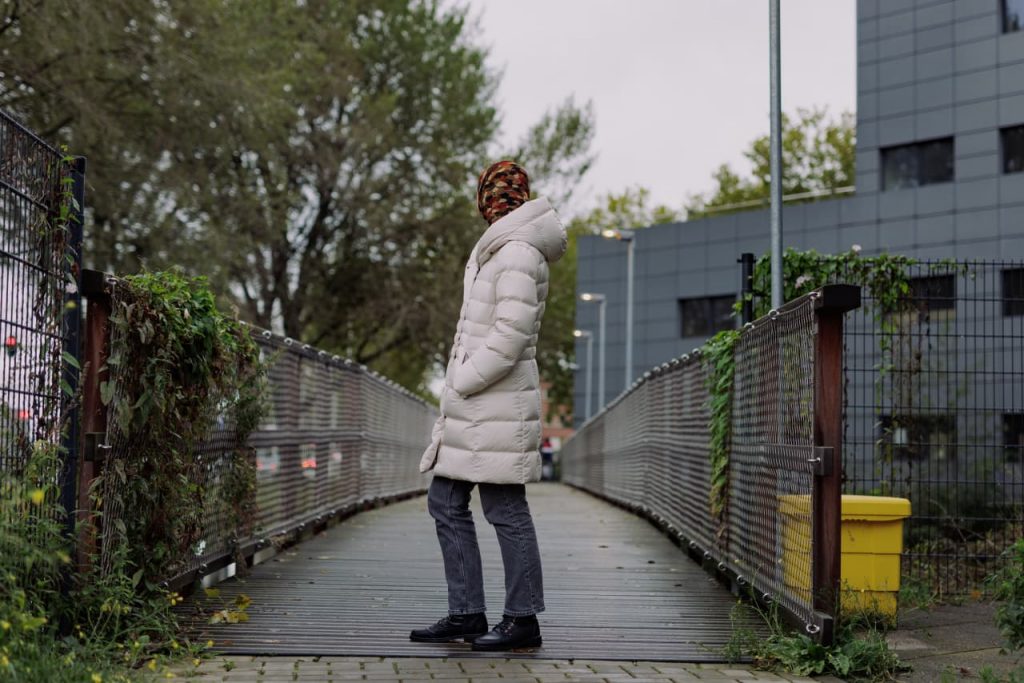
Mohamed tried from the moment the news broke to get back to Gaza. Photo: Jagoda Lasota for WSJ
Mohamed said she never wants her children to live in Gaza again.
“My son is 14. This is about his sixth year experiencing conflict,” she said. “What kind of childhood is this? What kind of fear has he grown up knowing? I can’t go back, I can’t let my children experience more trauma.”
Abu Shabaan, the bride whose wedding was canceled, eventually married her fiancé without a ceremony and has since fled Gaza with him to Saudi Arabia. She matter-of-factly ticks through the names of the people she knows who have been killed in the war—a list that includes her grandmother, uncle and several other relatives. Her father and other family members are still trapped in the Gaza Strip.
“I can’t have a wedding while my loved ones remain under fire,” she said. “I cry from the bottom of my heart when I think about memories from before the war and how everything has changed.”
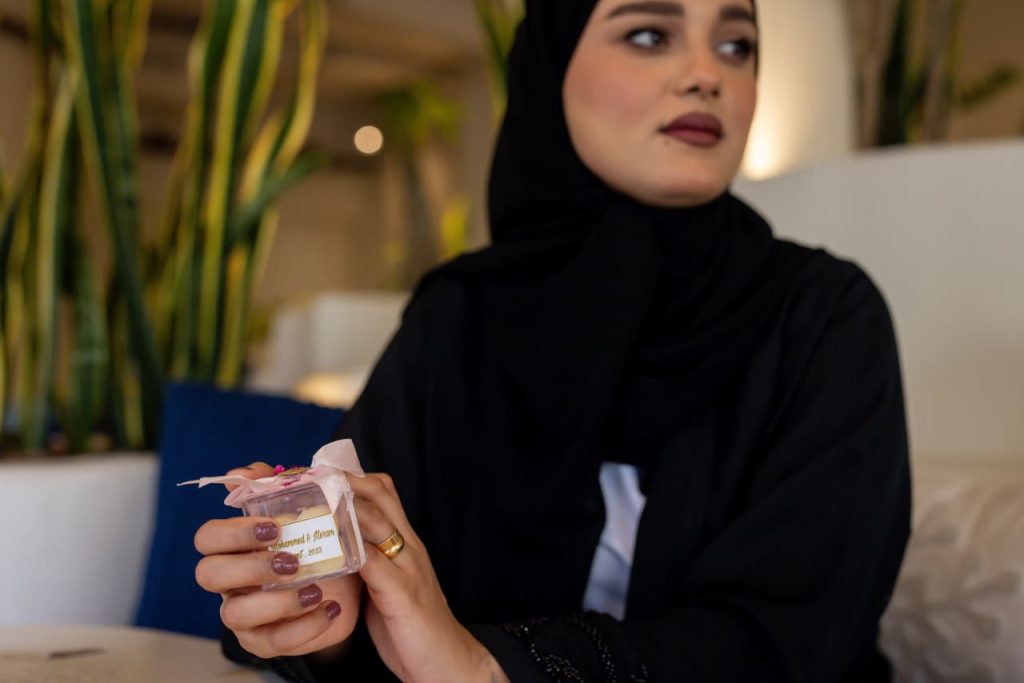
Abu Shabaan has since left Gaza for Saudi Arabia. Photo: Tasneem Alsultan for WSJ
Write to Omar Abdel-Baqui at omar.abdel-baqui@wsj.com
